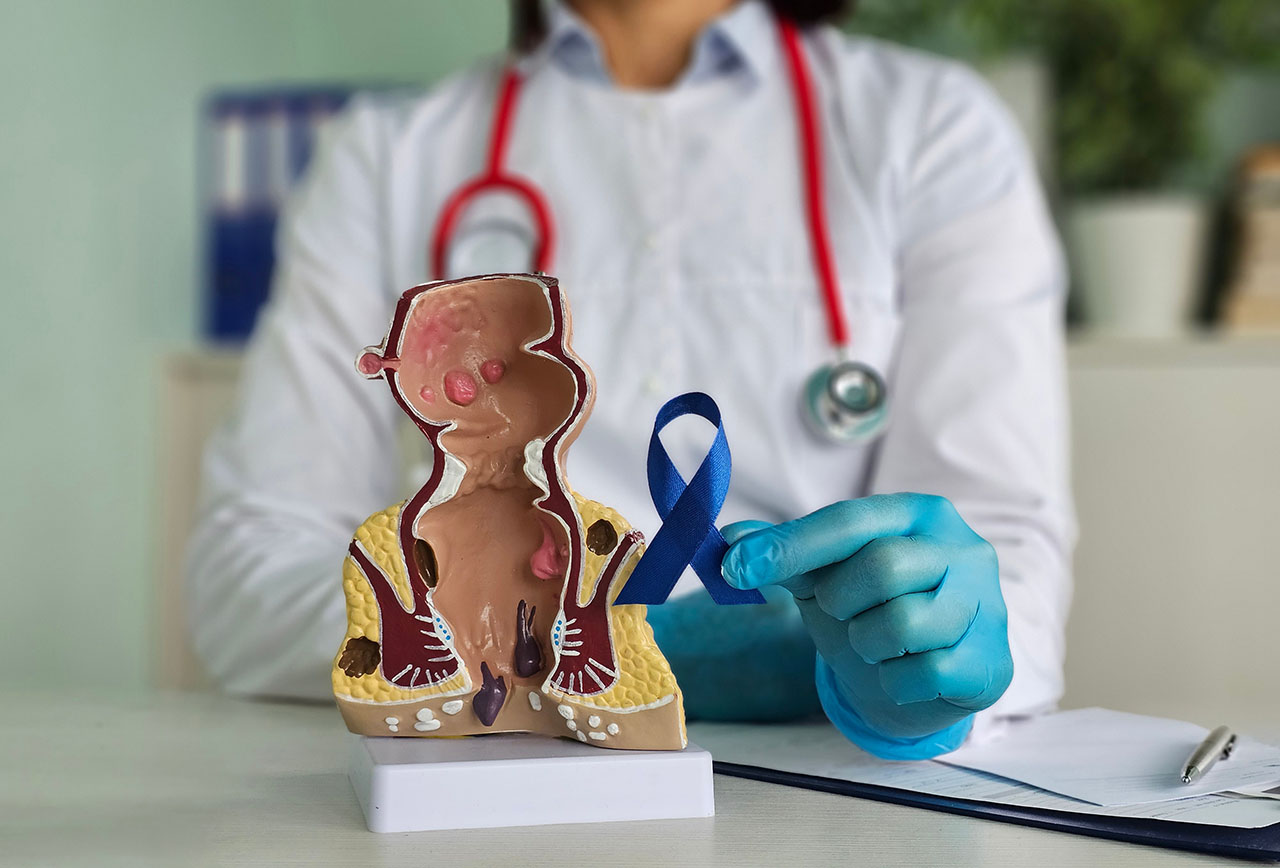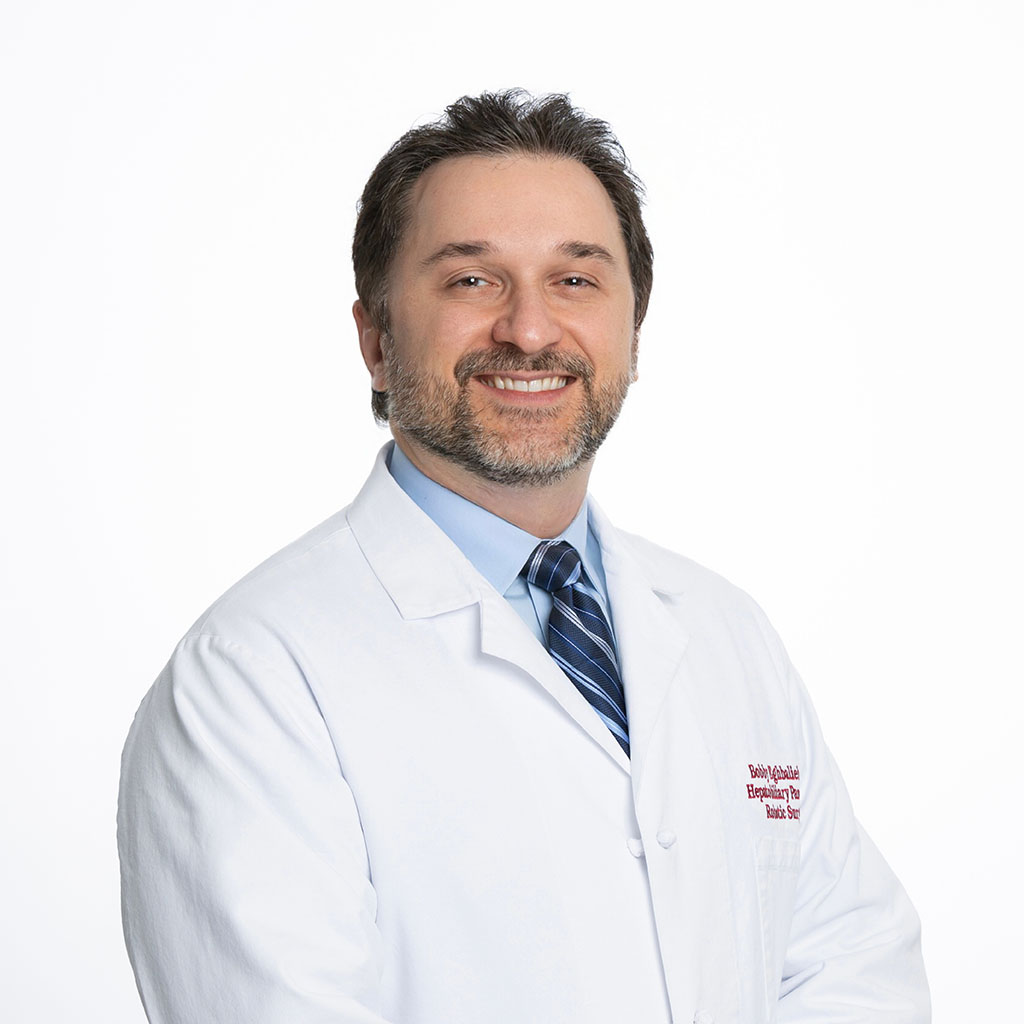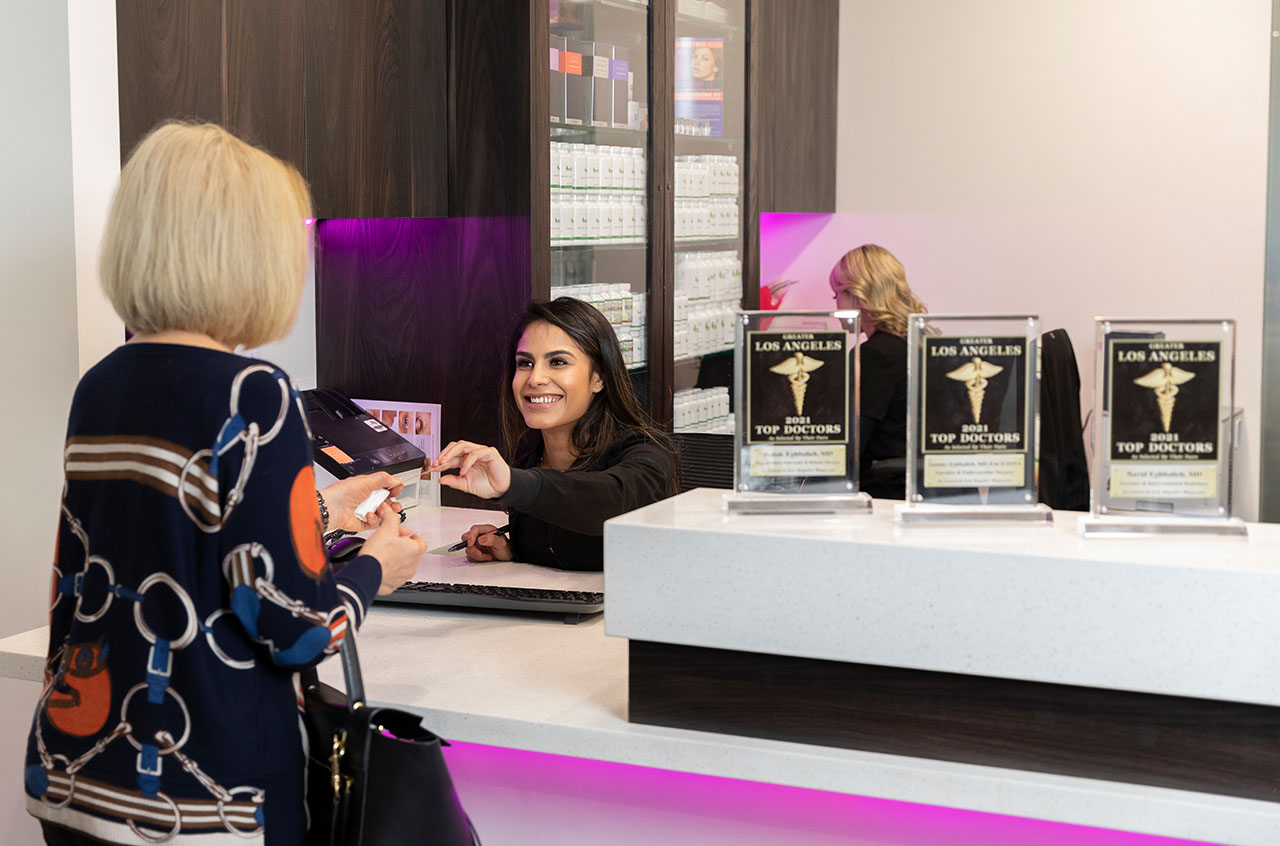Colon & Rectal Cancer Surgery
Colon cancer occurs throughout the large intestine, but when cancer develops in the last 6 inches of the colon, it’s rectal cancer. As a result, you’ll often see the two referred to as one condition — colorectal cancer.
According to the National Cancer Institute, colorectal cancer is the second leading cause of cancer deaths in America! Yet it’s highly treatable when caught in an early stage.
Patients with either colon cancer or rectal cancer need an experienced surgeon like Dr. Babak Eghbalieh at Southern California Multi-Specialty Center. Dr Eghbalieh is an expert in robot-assisted removal of both types of cancer.
Dr. Eghbalieh sees patients throughout the Southern California area, with offices in Sherman Oaks, Valencia, and Porter Ranch with a new location opening in Tarzana in the near future.
Colon & Rectal Cancer Q & A
See a doctor if you are experiencing bleeding from the rectum, changes in bowel habits or abdominal pain, as they could be symptoms of colon cancer.
What is colon cancer?
What is rectal cancer?
Rectal cancers are a type of cancer that affects the rectum, which is the lower section of the colon. The colon is a long, tube-like organ in the digestive system that absorbs water and nutrients from food. The rectum is the section of the colon that connects to the anus, and stool passes through this area when it leaves the body. Rectal cancer can develop in any part of the rectum, but it most commonly affects the upper or lower third of the rectum. Rectal cancer is similar to colon cancer, and both types of cancer are treated in a similar way. Surgery is the most common rectal cancer treatment, and radiation therapy and chemotherapy may also be used.
How does colorectal cancer develop?
This slow-growing cancer is preventable through colonoscopy screening which helps find and remove polyps before cancer develops. However, in a recent study, American Cancer Society researchers found new cases of colon and rectal cancer are occurring at an increasing rate among young and middle-aged adults in the U.S.
What causes colorectal cancer?
About 8% of the cases of colorectal cancer arise from a genetic component, so having a family history may increase your risk of developing colorectal cancer. However, its cause can’t be identified in most cases.
Colorectal cancer is strongly associated with lifestyle issues like diet and weight such as:
- Being overweight or obese
- Eating a diet high in processed meat
- Cooking meat at very high temperature
- Smoking cigarettes
- Physical inactivity
- Heavy alcohol use
You may also have a higher risk of developing colorectal cancer if you have a history of inflammatory bowel disease, type 2 diabetes, or you’ve been previously treated for prostate or testicular cancer.
What are the signs and symptoms of colon cancer?
When polyps first develop in the colon, they’re small and often don’t cause any symptoms. As cancer develops, you’ll begin to experience the following:
- Changes in bowel habits
- Blood in the stool
- Fatigue
- Abdominal discomfort, such as frequent gas, bloating, cramps
- Unexplained weight loss
- Pain with bowel movements
- Feeling that bowel doesn’t empty completely
- Anemia, weakness, and racing heart due to blood loss
Treatment of Colorectal Cancer
After the cancer is diagnosed, the cancer and part of the colon must be surgically removed. Dr. Eghbalieh is a highly-trained and experienced general surgeon, and a specialist in robotic surgery and minimally-invasive laparoscopic surgery. The doctor’s surgical expertise combined with the latest surgical instruments give patients a safe and effective option for removal of their colorectal cancer.
When Dr. Eghbalieh performs robot-assisted surgery for colorectal cancer, the state-of-the-art device offers several advantages. It gives Dr. Eghbalieh a three-dimensional view of the colon, provides extreme steadiness during the procedure, and allows him to manipulate the highly-mobile robotic arms for meticulous cancer removal. Dr. Eghbalieh has performed the most robotic surgeries in the Los Angeles area.
Dr. Eghbalieh successfully reconnects the colon in most cases, depending on the location and severity of the cancer. Following robot-assisted minimally-invasive surgery, patients need less time to recover and have less pain than after conventional colon surgery or rectal cancer surgery.
To schedule an evaluation with Dr. Eghbalieh at Southern California Multi-Specialty Center, call 818-900-6480.




